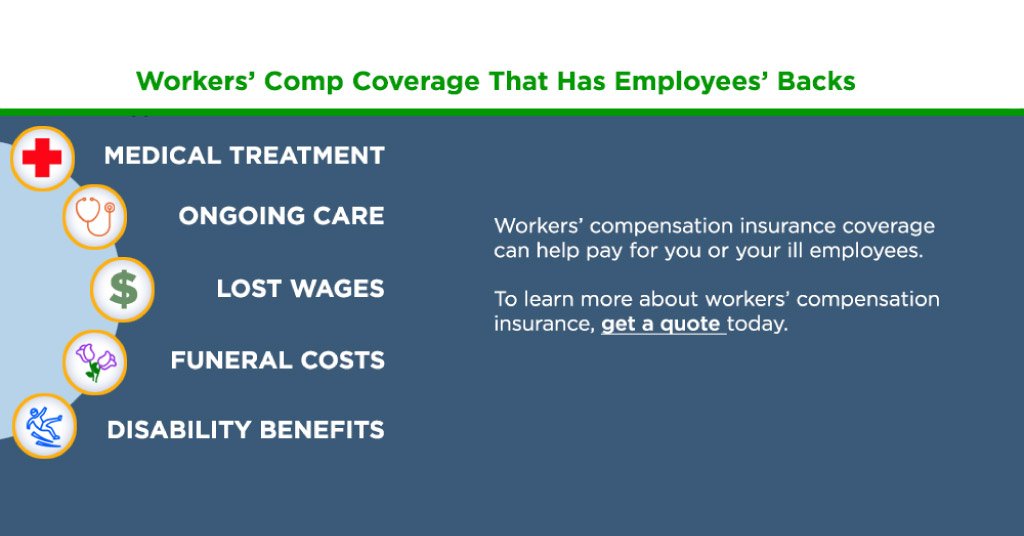Venturing into the world of entrepreneurship requires more than just a brilliant idea—it’s about building a solid foundation that will support your business goals. Before diving into the marketplace, it’s essential to pause and plan. This means taking a hard look at what you aim to achieve and aligning those goals with realistic expectations and strategies.
As you shape your business, remember that success hinges not only on your ability to innovate but also on understanding the practicalities of running a company.
Risk Management
One aspect of this practicality involves mitigating risks. It’s here that data from reliable sources becomes invaluable. According to The Hartford, a seasoned player in the insurance industry, a key component of risk management for any business is workers’ compensation insurance. This coverage is not just a statutory requirement but a fundamental part of protecting your business and its employees. Workers’ compensation insurance can cover medical treatment, ongoing care, lost wages, funeral costs, and disability benefits for employees who suffer work-related injuries or illnesses.
Understanding what workers’ compensation insurance covers is essential. It’s a multifaceted safeguard that addresses medical expenses, missed wages, and even funeral costs in the unfortunate event of an employee’s work-related death. For instance, if an employee at your future company suffers an injury while performing their job duties, this coverage will be crucial in providing for their medical expenses and compensating for lost wages.
Building a Robust Business Plan
The blueprint of your business lies within its business plan. This document is your roadmap, outlining where you want your venture to go and the routes you’ll take to get there. A thorough business plan touches on key points: market analysis, organizational structure, product or service offerings, marketing and sales strategies, and financial projections. It’s not just a formality—it’s a living document that will evolve as your business grows and changes.
When drafting your business plan, it’s important to be both comprehensive and precise. Detail your value proposition: What sets your business apart? Who are your customers? How will you reach them? What will you do if things don’t go as planned? These are not just hypotheticals; they’re the questions that, when answered, can attract investors, guide your team, and steer your business towards profitability and sustainability.
Navigating Legal and Regulatory Waters
Entrepreneurs often focus on the market and financial aspects of their startups, but legal and regulatory considerations are just as crucial. Complying with laws and regulations from the get-go sets a precedent for operational excellence. For U.S.-based businesses, this means understanding federal, state, and local regulations that pertain to your industry and business structure.
For example, workers’ compensation insurance is a legal requirement for most businesses with employees in the United States, and it is regulated at the state level. This means that the specifics of what you need to provide can vary significantly depending on where your business operates. The Hartford notes that states may have different rules regarding coverage for part-time employees, contractors, and family members. It’s your responsibility as a business owner to understand and fulfil these requirements, which protect both your employees and your business.
Financial Forecasting
A financial forecast is the aspect of your business plan that predicts your company’s economic trajectory. It’s a tool to estimate future revenues, expenses, and capital requirements. Crafting this forecast demands a blend of optimism about your business’s potential and a realistic grasp of your current financial situation. It’s not enough to have a vision of becoming profitable; you need a quantifiable path to get there.
This is where you’ll need to dive deep into numbers. Consider the cost of securing a location, purchasing equipment, hiring staff, and marketing your product or service. Don’t forget to factor in the ongoing expenses like utilities, supplies, and insurance. The Hartford’s insights show that not accounting for the right kind and amount of insurance can be a critical oversight.
The Necessity of Workers’ Compensation

One of the most critical types of insurance for any new business with employees is workers’ compensation. This isn’t an area to overlook or cut corners on because the ramifications of not having adequate coverage can be severe. Workers’ compensation insurance does more than just fulfill a legal requirement—it also serves as a support system for your employees and a risk mitigation tool for your business.
But workers’ compensation insurance isn’t just about responding to accidents—it’s about prevention. By having this coverage, you can establish a culture of safety in your workplace. It encourages proactive measures and safety training that can reduce the likelihood of accidents occurring in the first place. Furthermore, it’s a clear signal to your employees that their welfare is a priority, which can contribute to higher morale and productivity.
To better understand the comprehensive nature of workers’ compensation, consider this informative infographic provided by The Hartford. It visually breaks down the essential components of coverage that safeguard both your business and your workforce. The infographic illustrates the breadth of protection, from medical treatment to disability benefits, each aspect color-coded and symbolized for quick reference.
This visual aid not only serves as a reminder of the various areas covered by workers’ compensation but also functions as a quick guide for employees to understand the benefits available to them. It’s a valuable resource for any business owner to communicate the importance of workers’ compensation clearly and effectively to their team.
Market Analysis
No business operates in a vacuum. Your market analysis should give you a clear picture of the industry landscape, including potential customers, competitors, and economic trends. This section of your business plan is where you demonstrate that you know your audience and understand what makes them tick. Who needs your product or service? How large is your target market? What are the spending habits of your potential customers?
Your market analysis should also keep you aware of the competition. What are they doing well? Where are they falling short? How will you differentiate your offerings? The Hartford suggests that understanding your market is key to not only carving out your niche but also in anticipating risks, such as market downturns or shifts in consumer behavior that could impact your business. Knowledge in these areas can inform your risk management strategies, including how you structure your workers’ compensation and other forms of insurance coverage.
Final Thoughts
As we draw the curtains on this exploration of entrepreneurship, remember that launching a business is a complex, multifaceted endeavor. It’s a journey that requires careful planning, risk management, and an unwavering commitment to your vision. Your business plan is your manifesto, the financial forecast your budgetary compass, and your market analysis the lens through which you view the commercial landscape. Each of these components is vital to the integrity and success of your enterprise.
ALSO READ: 15 Sensible Tips for Growing Your Business















